A New Life To Save
Little Phabeni is an orphaned four-month-old elephant that was rescued in November 2023. One morning, a woman living near the Kruger National Park in Mpumalanga, on the park’s boundary at Crocodile River, woke up to find an elephant calf in her property. There was no sign of his mother or herd.
The woman wanted to do the right thing and asked us how she could go about giving the calf milk. It is not an easy task to raise a baby elephant orphan, and is much better done by a dedicated elephant orphanage like HERD. It is a difficult process as in the longterm the baby will become an adult elephant that needs a family. Giving a calf milk is always tricky and giving the wrong milk can be fatal – even if it is only once.
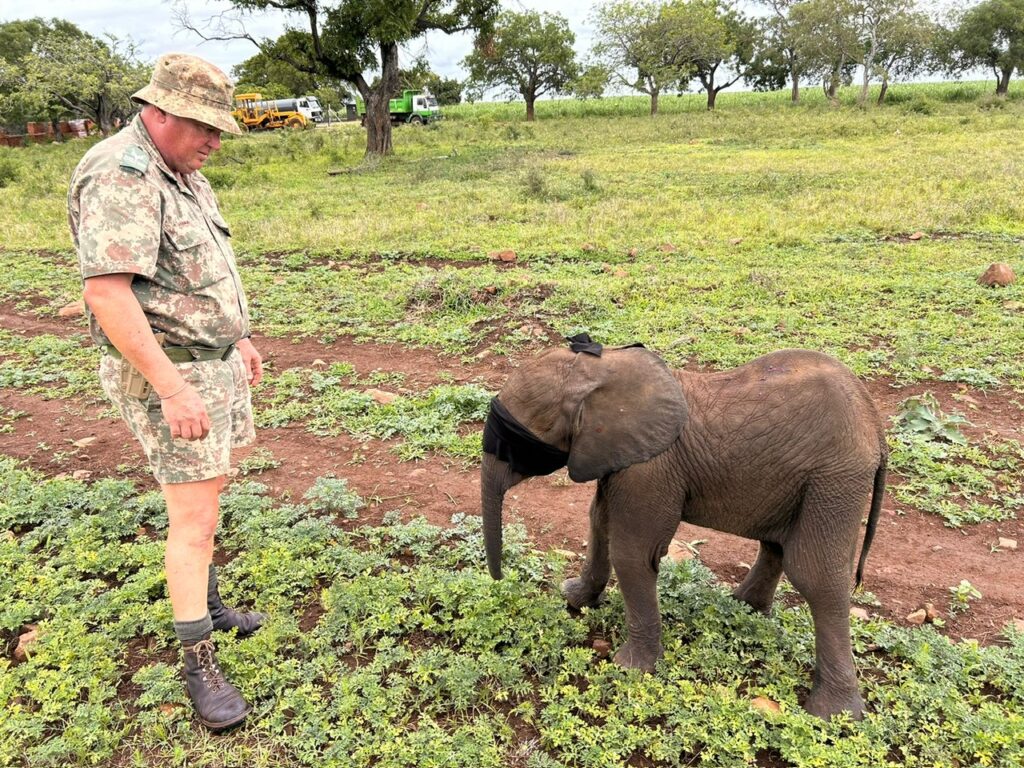
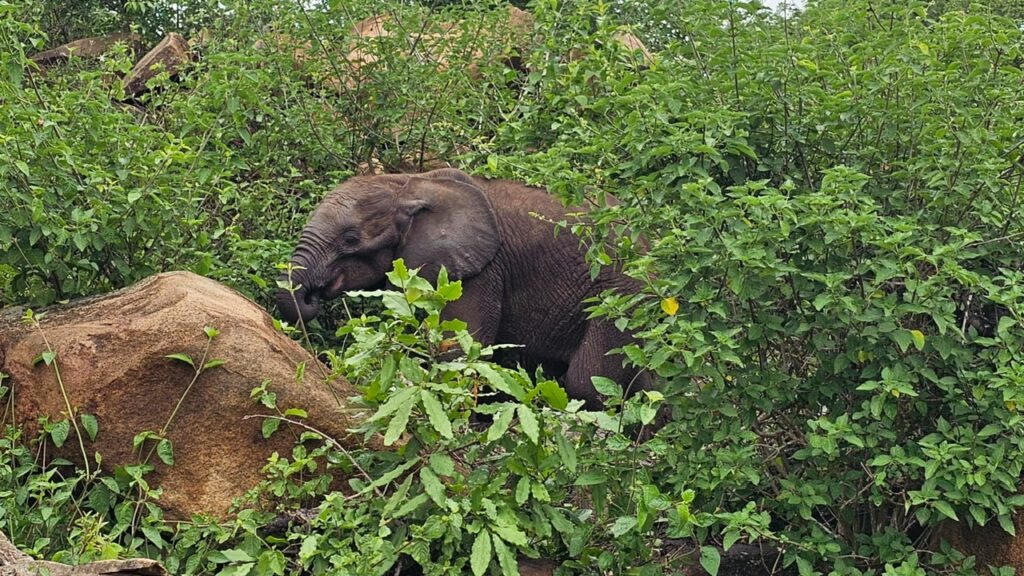
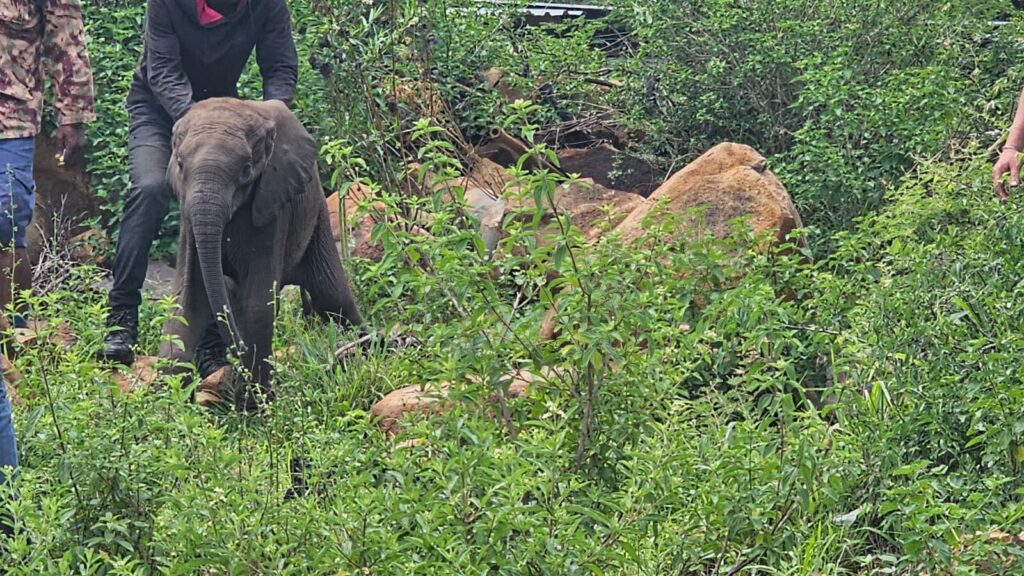
Officials from Nature Conservation at the Mpumalanga Tourism and Parks Agency were sent to the scene and while en route contacted us at HERD to ask if we could step in to help. Having a request from Nature Conservation directly is much easier when it comes to getting the right paperwork for an export permit. This permit is needed to transport the elephant from Mpumalanga, in this case, to the Limpopo province where HERD is situated. Paperwork is essential in moving wild animals as you need permits in order to avoid and restrain the illegal movement of animals and animal parts.
While this was happening, wildlife vets from the Mpumalanga Tourism and Parks Agency, including Chris Hobkirk – who in fact helped rescue Khanyisa – were called to help tranquilise the baby for transport. Nature Conservation had a big crate for rhinos and could accommodate the little elephant.
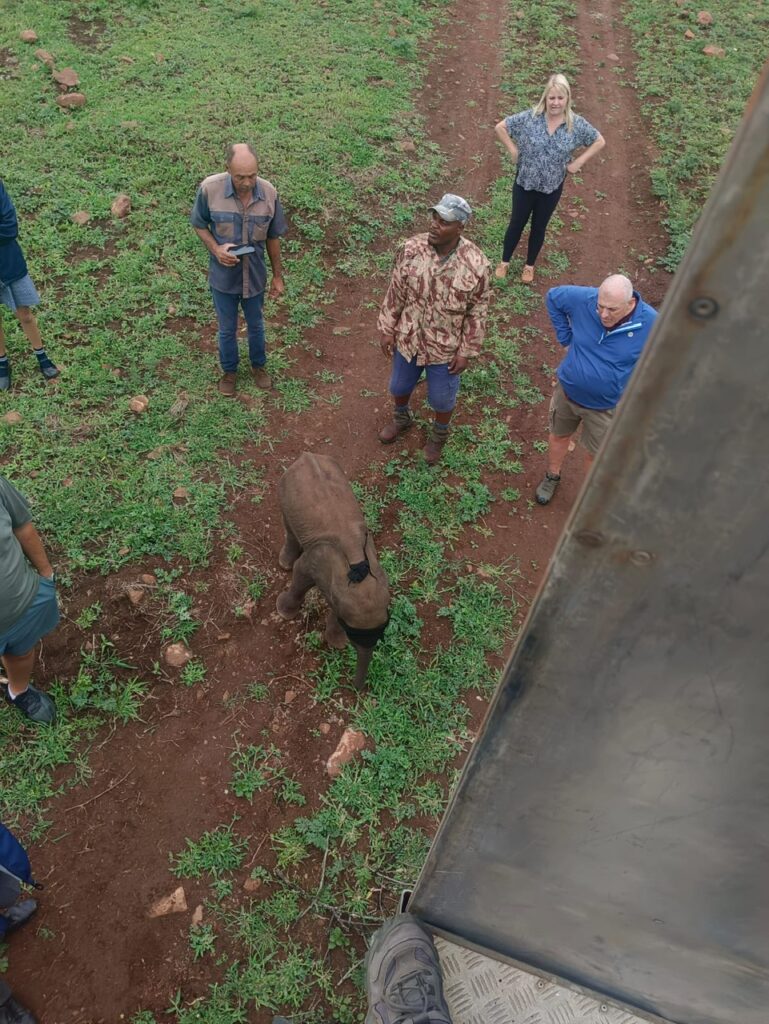
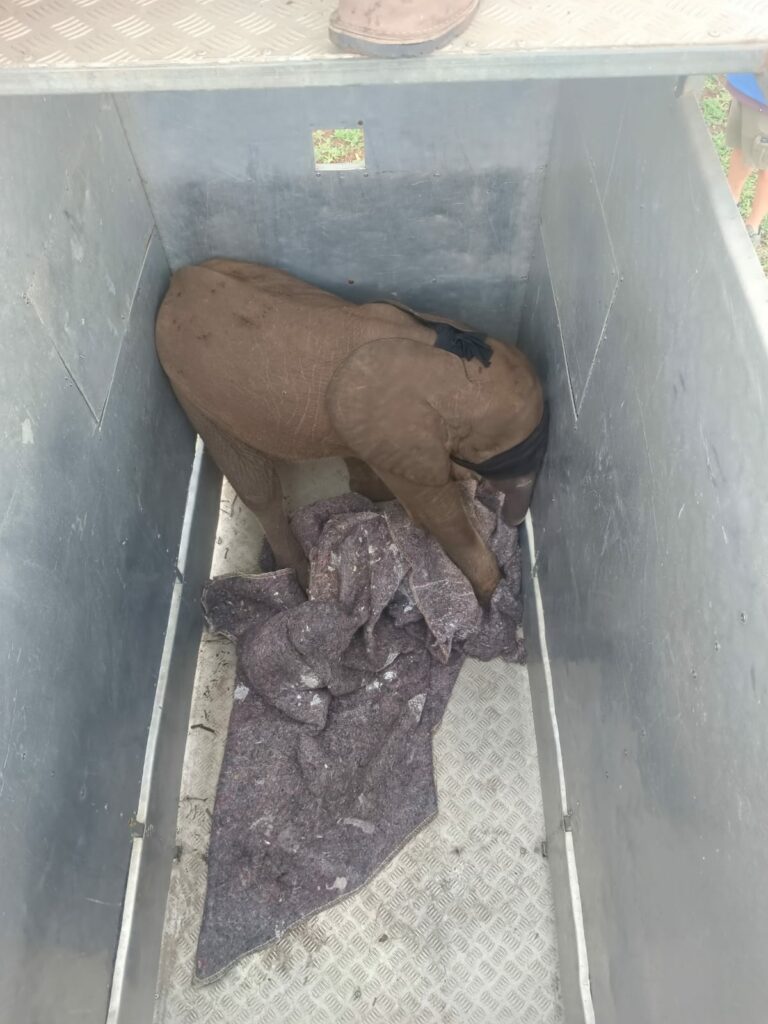
“One of the vets made contact with me, as he wanted to know what I suggested he give the baby, based on our usual operating procedures,” says Adine. “I really appreciated this as tranquilising wildlife is tricky business and how you go about it creates different after-effects. We discussed our estimates for the calf’s weight based on what I saw on the videos and photos sent to me, and what I had experienced in the past. The calf was tranquilised and loaded into the crate. The vet handed a top-up tranquiliser to the team, as this would be needed for the trip to HERD. We didn’t want to give the calf too much at once, as any sedation always has its risks. The vet also confirmed with me that the elephant had small injuries that will likely heal easily.”
With the help of the veterinarians, the calf was transported to Kruger National Park’s Phabeni gate, where the HERD team was waiting for him.

Meanwhile at HERD
On the other side at HERD, while the rescue team were en route to the elephant, the team on the ground were preparing the orphanage for the calf’s arrival. A nursery needed to be made up with teff for bedding. “The funny thing here is that the rhino orphans at HESC were running out of teff and last week I gave them bales,” says Adine. “But I said to keep five bales in case HERD gets a calf. Experience told me that these things happen like that.”
Nursery carer, Khensani checked our stock – reminding us why it is so important to keep stocks like medical supplies and equipment updated and available, even when there is no calf at the orphanage. You never know what might happen. We needed our notebooks (“HERD’s little black book”) to document the orphan’s dung, urine and sleep times, a big A4 book to write down daily happenings and handovers, new teats as we use a different teat to get new orphans onto the bottle, plus new small milk bottles to make the first feedings easier.
Lammie needed to be brought back to HERD, as she had been on rhino duty at HESC with the influx of orphans the centre had recently received. After Nungu was sadly put down, after growing very weak in her old age, Lammie was alone and stepping in again to be a companion to rhino calves. But her time to rejoin HERD had come and we were happy to have her home to help with the new elephant coming our way.
Our HERD Operations Team were overseeing communications and paperwork while Ops Manager, Greg, Jabulani Lodge Manager, Ruan, Elephant Manager Tigere, and carers Stavros and Joshua were on their way in the HERD Toyota Quantum vehicle to collect the baby. The team took out the back seats so the calf could lie down inside with a carer. This is a different system from transporting a rhino calf, as rhinos are most often transported in a container.
“I brought in our previous HERD Ops Manager, Juan, who was living close-by,” says Adine, “as he has been through the arrival of a calf with me before. With me being away, trying my best to get back to Hoedspruit as quickly as possible, I knew Juan would know what to do on the ground, and would understand my communications, while teaching our new Ops Manager team. I truly appreciate Juan for always being willing to be a right-hand for me.”
“I called my son, who is working in Kwazulu Natal as a vet, doing community service, to ask if he could join the team on the ground to assist. He has worked alongside me many times over the years as we have rehabilitated and integrated other elephant and rhino orphans. I needed my team now.”
Adine also contacted wildlife vet, Dr Peter Rogers who works close by to HERD in Hoedspruit, and organised for him to join the new orphan when it arrived at the orphanage.
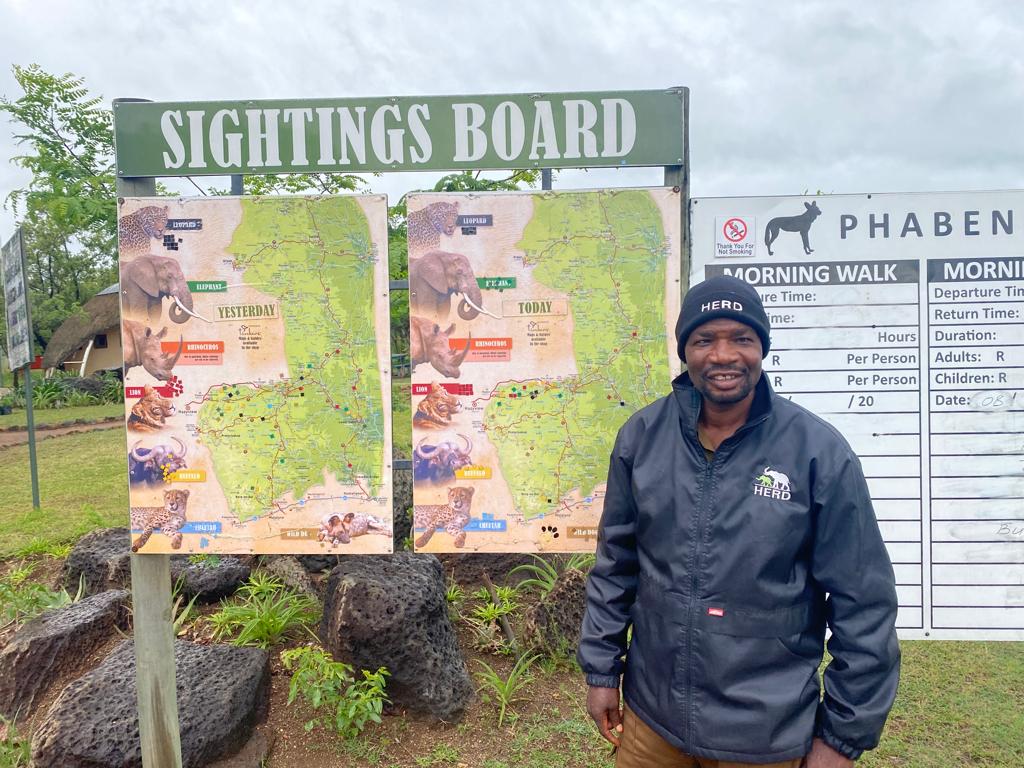
HERD Elephant Manager, Tigere at the Phabeni Gate, ready to collect the new orphan
Let’s Go Home
The HERD team arrived at the Phabeni gate early to ensure that the calf did not have to wait for them. It rained all the way and was extremely cold. When the baby arrived, it looked so small in the big container. The Parks team said we could borrow the container, but we knew our HERD Toyota Quantum would be the best option.
“It was the easiest and smoothest transfer of a baby. Everything fell into place, which I was extremely grateful for as I knew there would be hard times and long days and nights ahead of us,” says Adine.
The team carried a blindfolded calf over from the container to the HERD Quantam, the door was closed with Tigere and Stavros beside the elephant. The journey home could now begin.
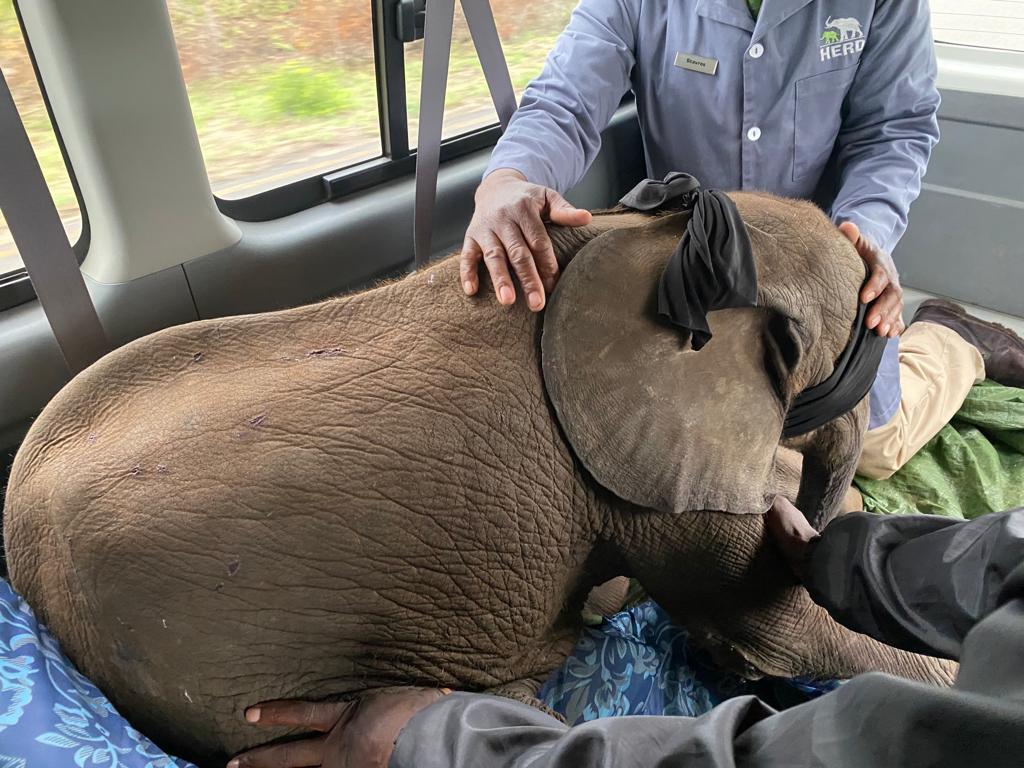

The calf was named by the HERD rescue team (Tigere, Joshua and Stavros) and the name chosen was Phabeni, which means “shelter” in Sotho. This name was chosen to honour the Phabeni gate where we met the little elephant, and honour how the calf had sought shelter in the yard of the woman who helped save his life.
At the time of his rescue, Phabeni was estimated to be about four months old. He weighed just 122 kgs – a little less than Khanyisa who weighed 124 kgs at the time of her rescue, also at four months of age.
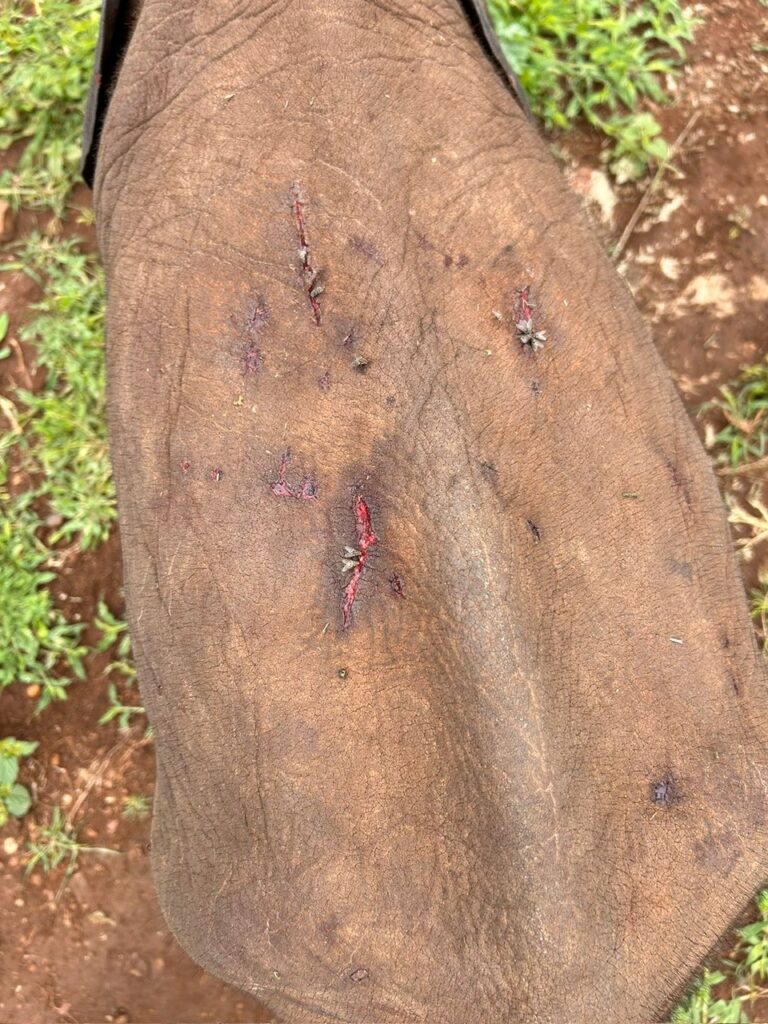
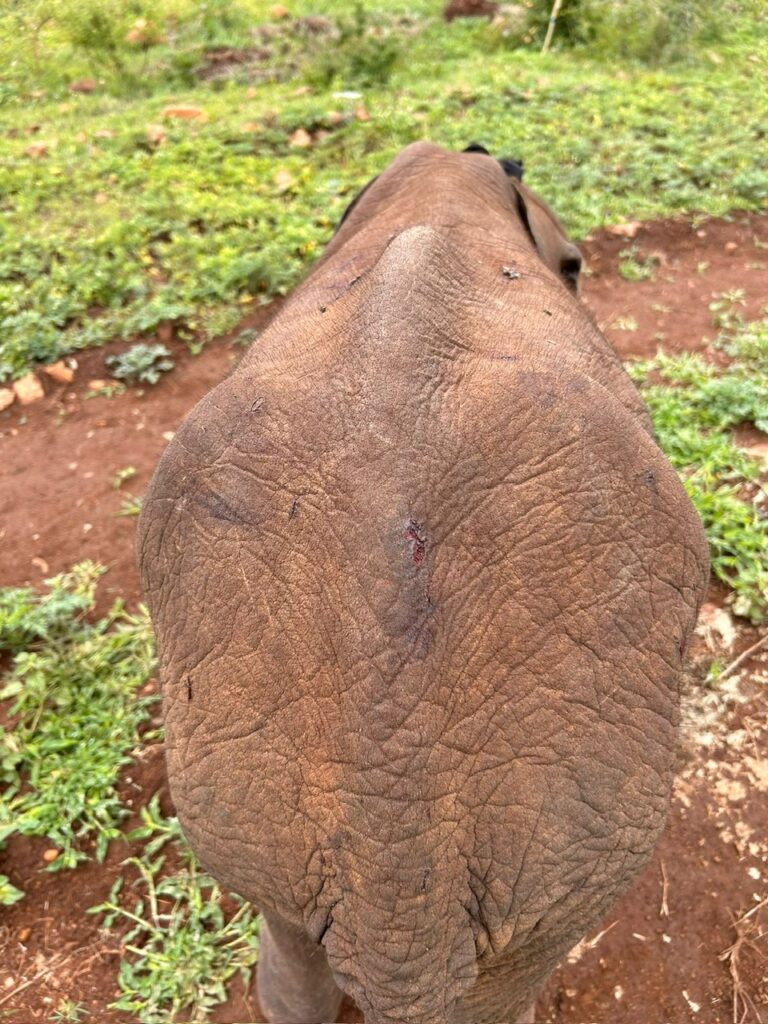
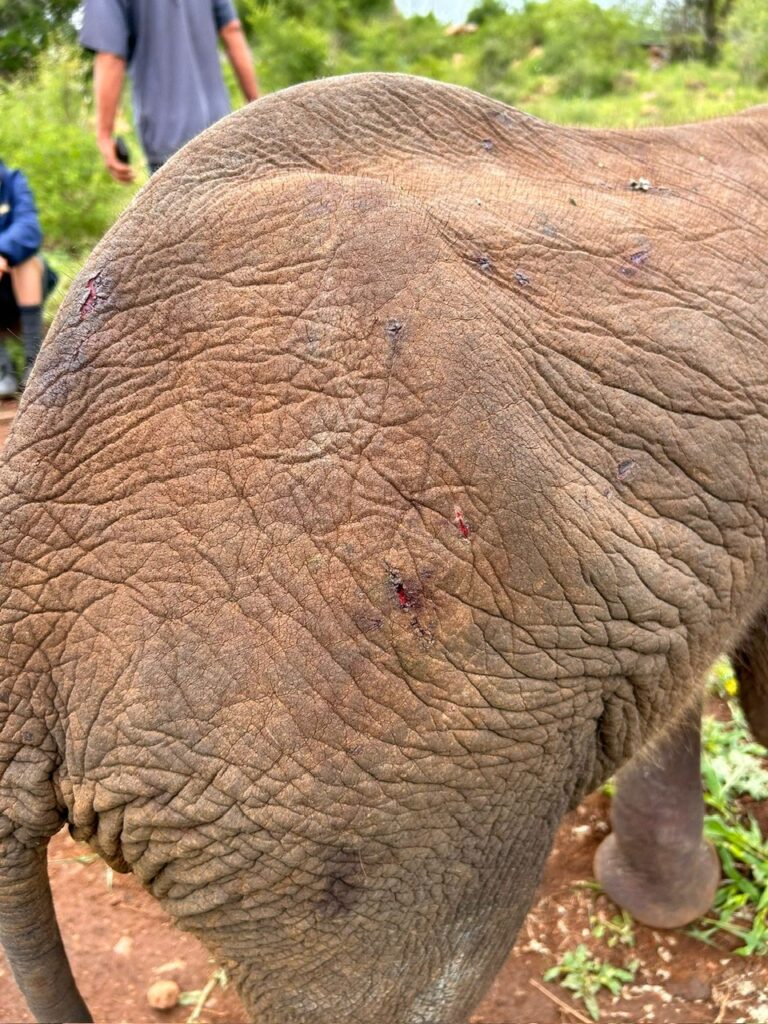
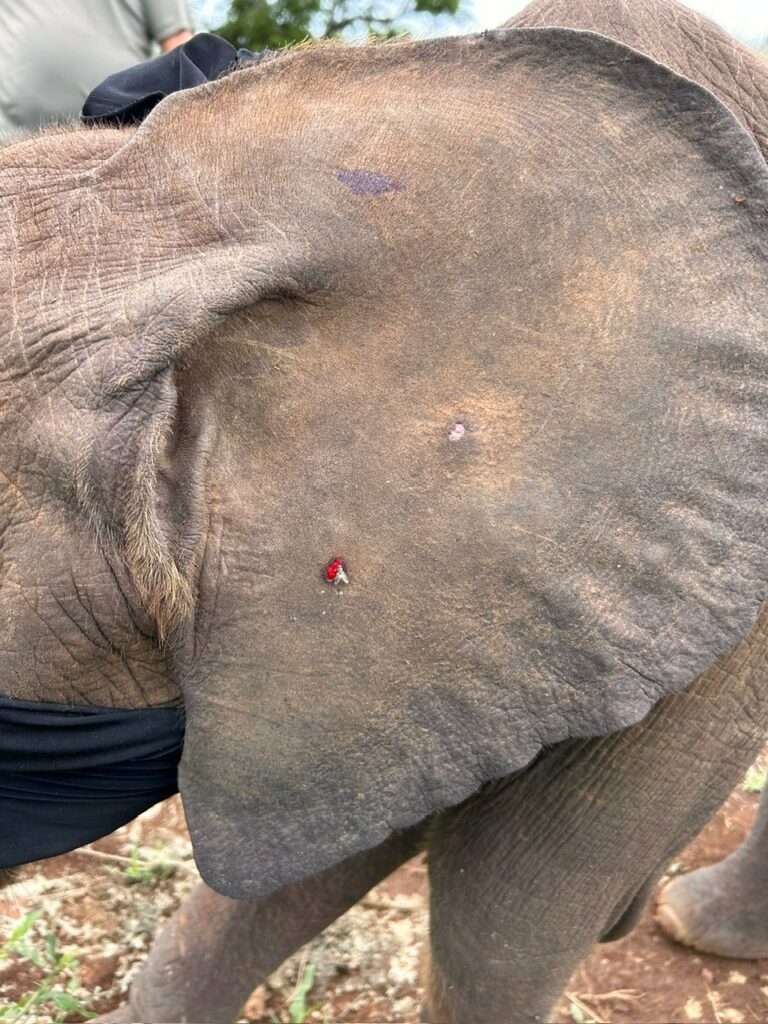
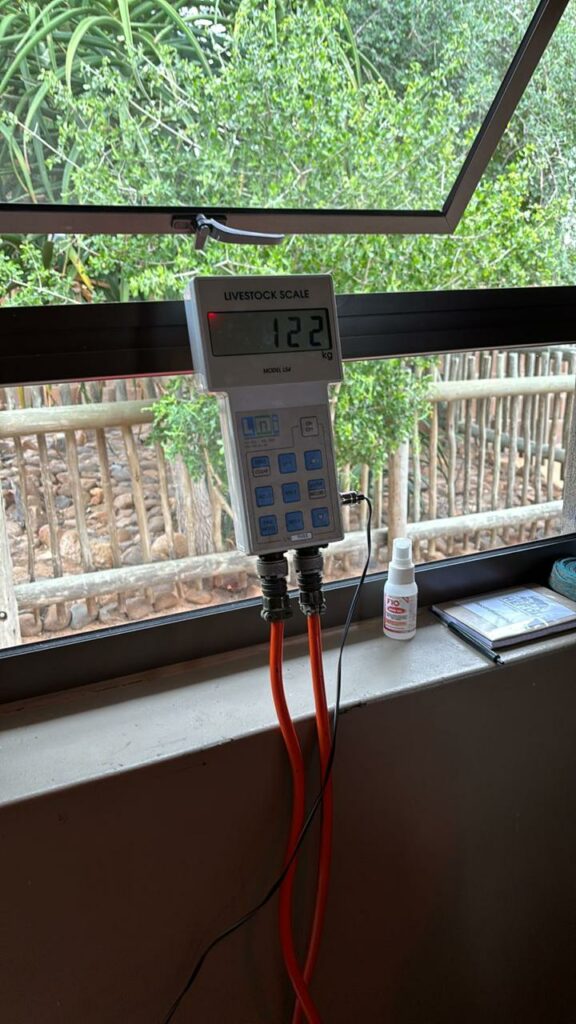
Above: The calf sustained light wounds to its skin before being rescued, but we trust that these will all heal well.
Phabeni’s Arrival
At HERD, Khensani had a bottle ready on arrival for the orphan. This would be a good time to try and feed the calf as he would still be calm from the tranquiliser. When the team arrived, the elephant was carried into the nursery and onto the scale, for a weight reading. This is essential in tracking the calf’s progress as weight loss can be fatal. It helps guide us in our care of the baby. Stavros was able to get the elephant to drink easily – what a beautiful sight to see after the long trip and the difficulties and trauma the little calf had been through. As tragic as his last few days no doubt were, the calf was now in the right place to help him heal. He could get the milk he needed without his mother to provide for him, and the promise of a new elephant family awaited him, right next door in the elephant homestead.
We will update you on Dr Rogers’ treatment of the calf and the first night and day at HERD shortly. The orphan is in good hands with Lammie by his side and our carers keeping a close eye on him. We know that orphans are at their most vulnerable during the first few weeks after their rescue. Their condition can take a turn for the worse at any moment, and the team knows to be prepared for anything. Phabeni has been through a very stressful and traumatising time, and he needs to recover both physically and emotionally.
We know the coming months will be filled with many sleepless nights and worry-filled days. But Phabeni deserves a second chance at life, and we will do everything possible to give him that chance. Thank you for walking this new journey of rehabilitation, recovery and hopefully reintegration with us.
www.herd.org.za
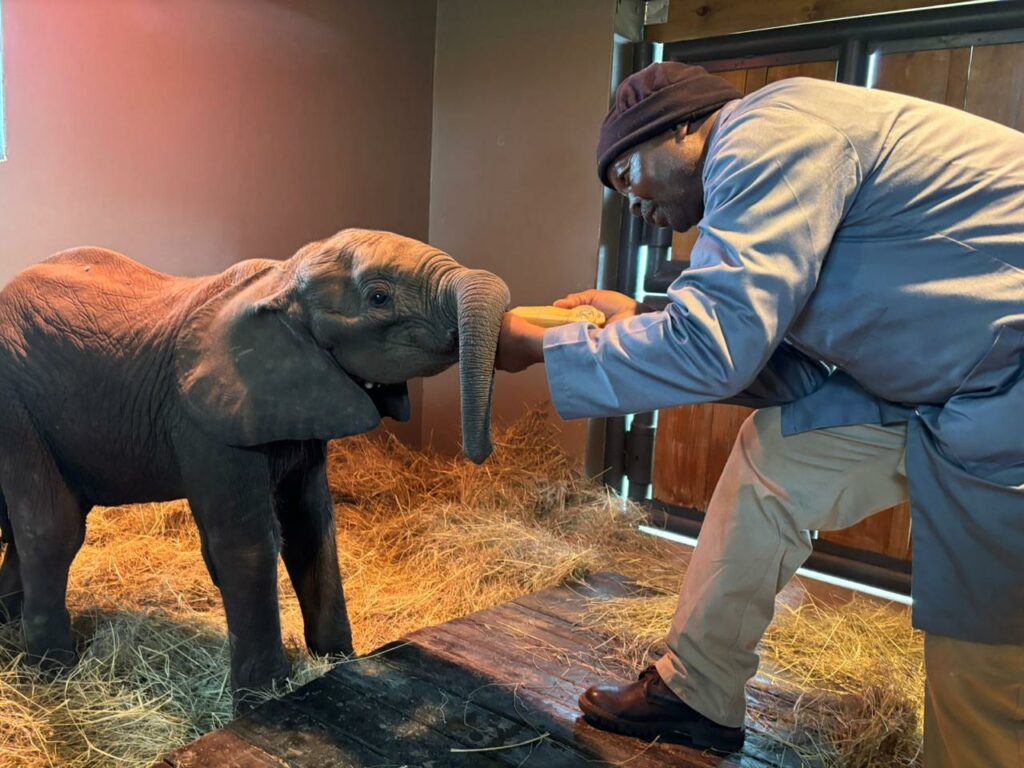
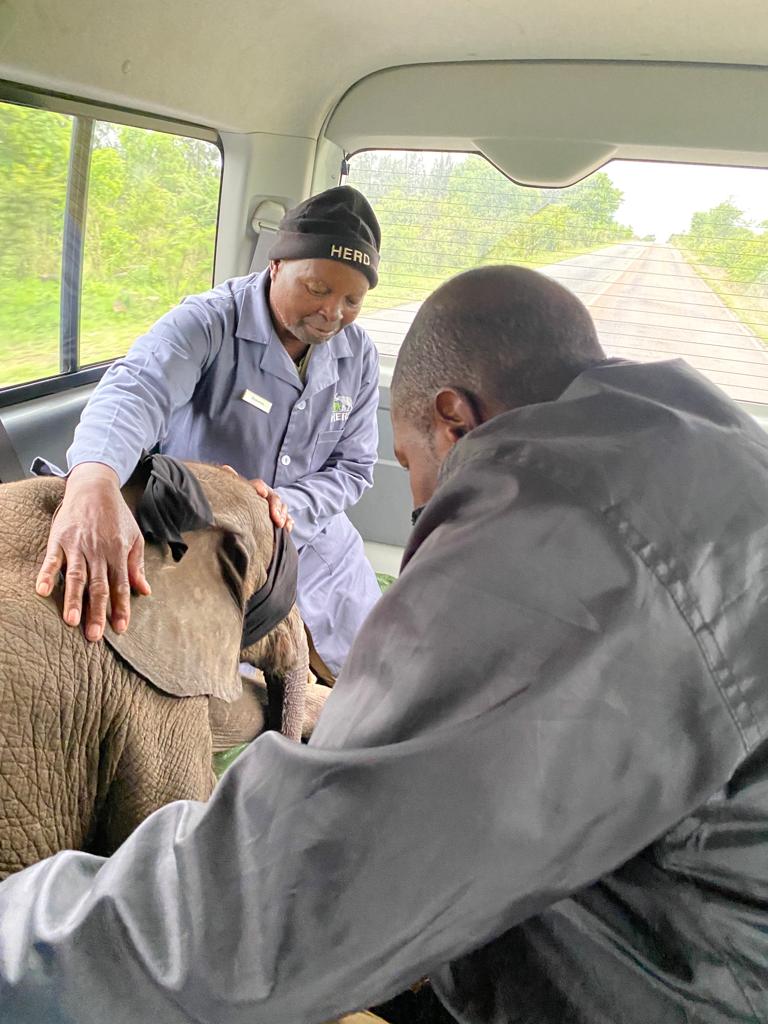
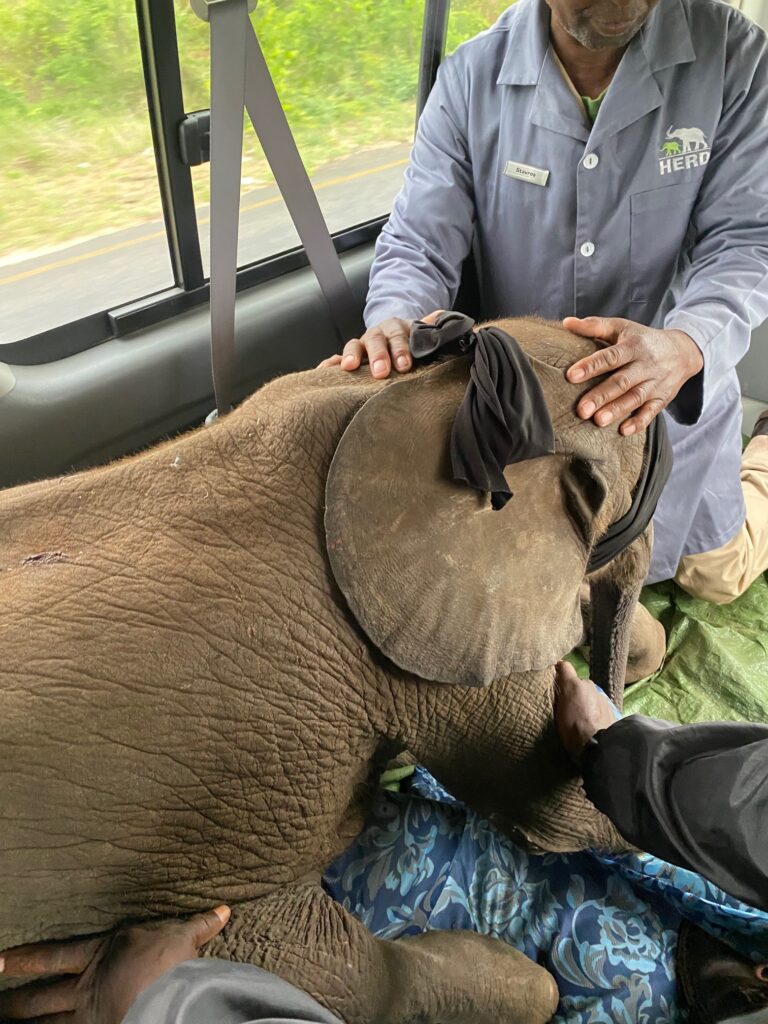
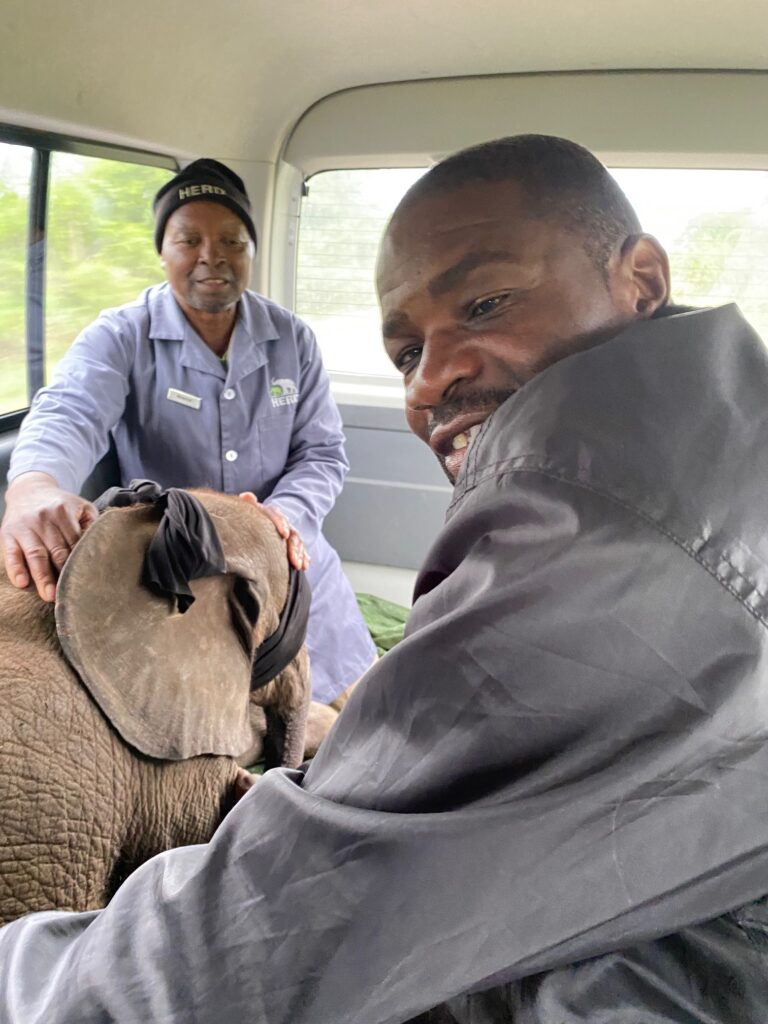
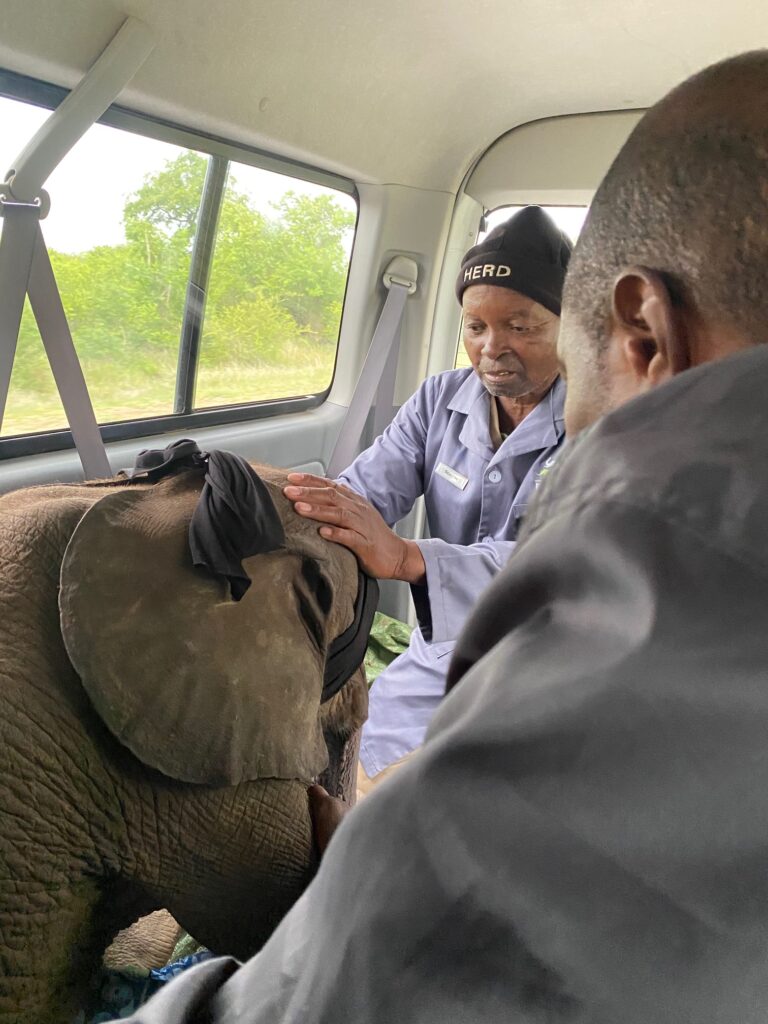



 Comment
Comment

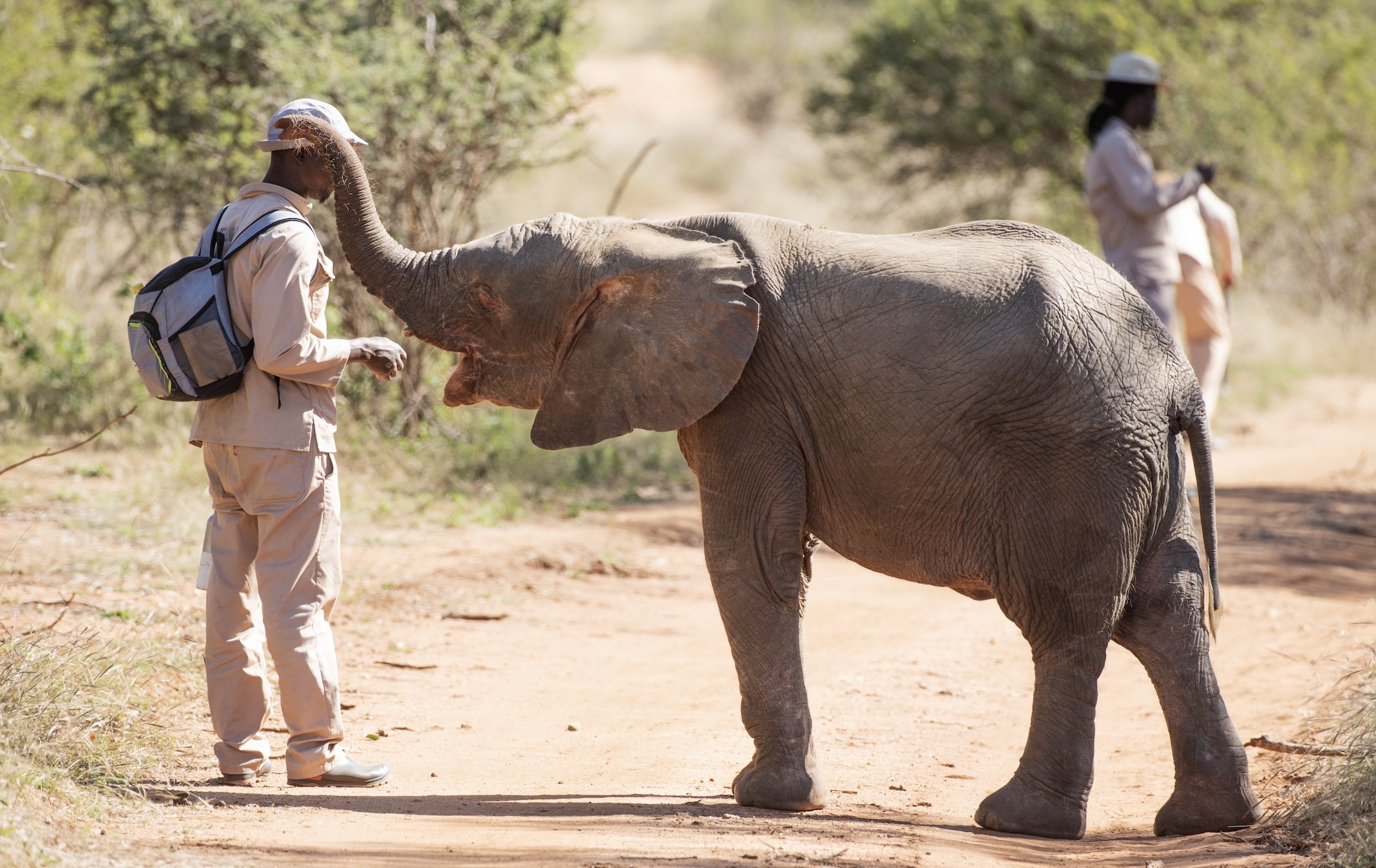




Our eternal thanks for what you do! May little Phabeni grow to be a big boy in the care of HERD❤️
Wish a long life to baby Phabeni. Thank you so much to all of you involved in this rescue.
How heartwarming, all working together to save little Phabeni. Sending love and blessings to you all, and to the little one, he is in the best place.
very much appreciable may little phabeni grow well with good health my best wishes to him 🙏
Have been watching on YouTube how Phabeni has been wonderfully, lovingly, being taken care of. He has grown so much, beautiful eyes wide open now with plenty of mischief in them instead of frighten. Congratulations to ALL dedicated carers. You are doing a fabulous job although it is long and demanding. Thoughts and prayers go out to you and all the great Animals you saved and give a great life to. Thank you so much.
Phanbeni is right where he needs to be. May God bless you always. Thank you so much.
so happy he’s starting his new life,deserves a good life.
Thank you for the shelter, love and family you provide to these babies and of course, the Herd they become a part of.